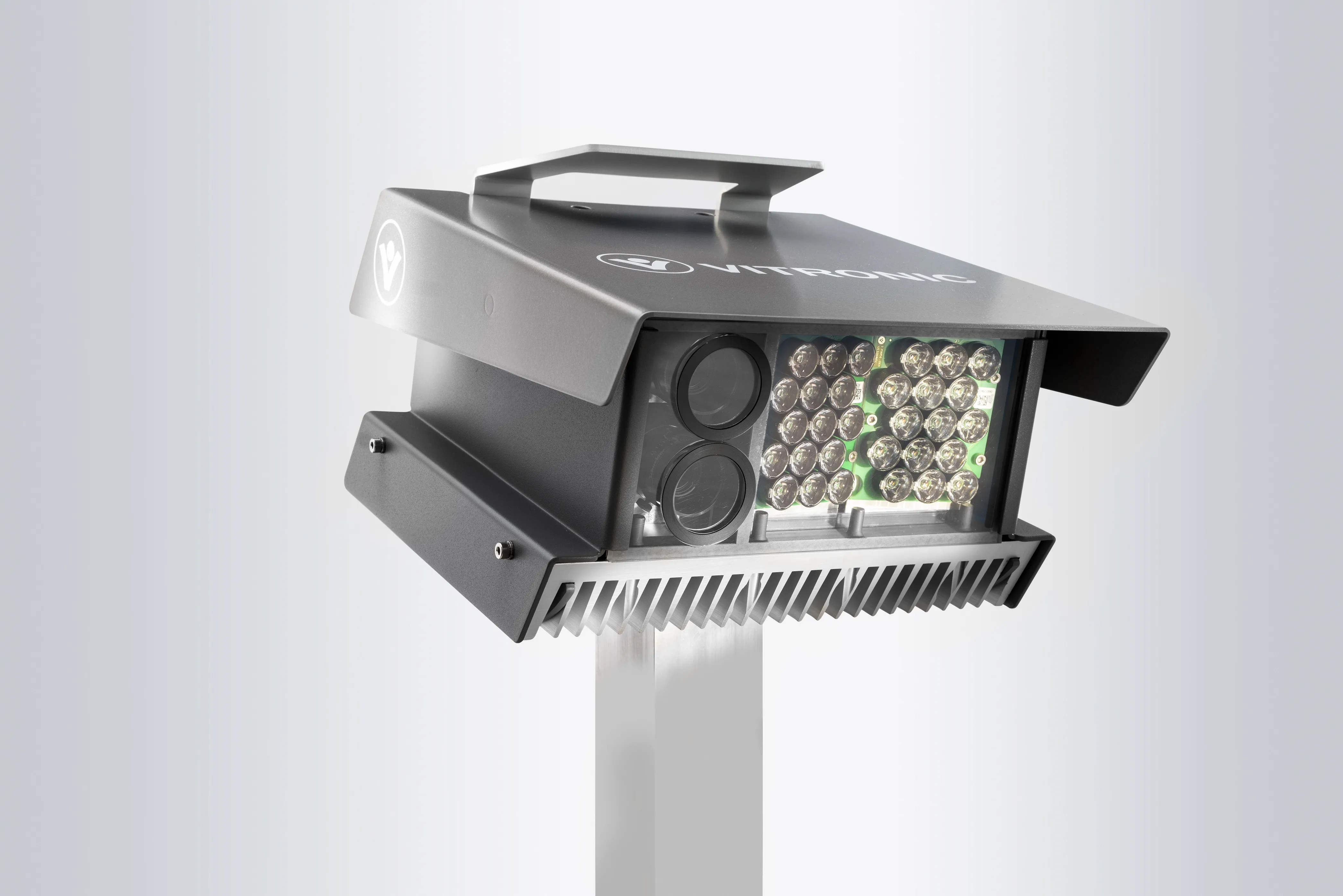
By mid-2018 it will supply global logistics services provider Toll Collect with up to 600 toll payment-monitoring pillars to monitor truck toll payments as part of the planned extension of compulsory tolls for trucks using Germany’s federal highways.
Jenoptik’s combination of optical and tracking sensors being employed is said to set new standards in toll monitoring system and the contract is valued in ‘the mid double-digit million euros’. It uses distances measuring sensors, stereo image-processing and roadside-mounted cameras to record and classify trucks for toll-collection purposes.
According to the company, this combination is the first time axle-numbers can be detected using roadside-mounted cameras integrated into Jenoptik’s protective Traffitower housing, and removes the need to install monitoring gantries.
The cameras take high-frequency photographs of individual sections of each truck and generate scaled, distortion-free images from which the exact dimensions of each truck and the number of axles can be precisely determined for toll classification. Jenoptik claims to currently be the only company offering such a solution.
Company president and CEO Michael Mertin said: “Digitisation is playing an increasingly important role not only in production but also in road traffic. With our toll monitoring system solution, we are helping to successfully develop options in the digital world.”
The statutory functions connected with monitoring the compulsory toll payments will be carried out by the German’s Federal Office for Goods Transport.









